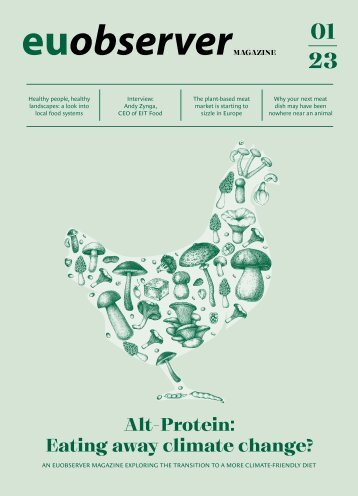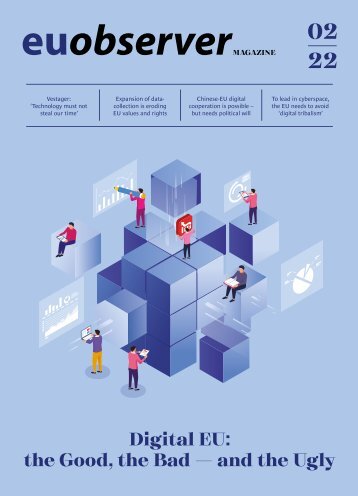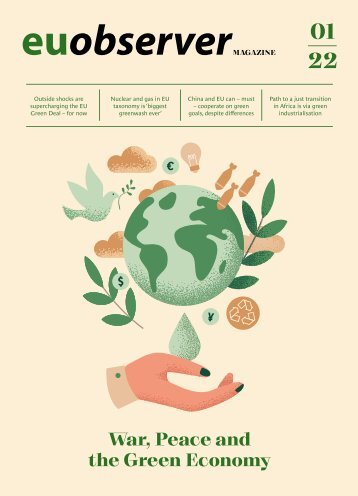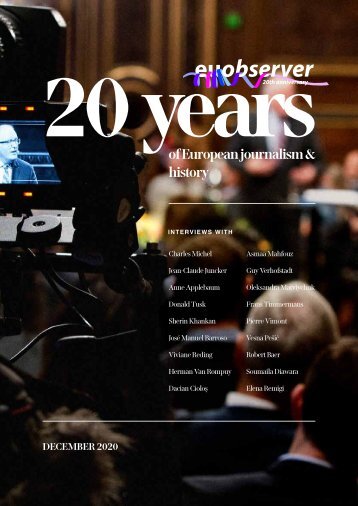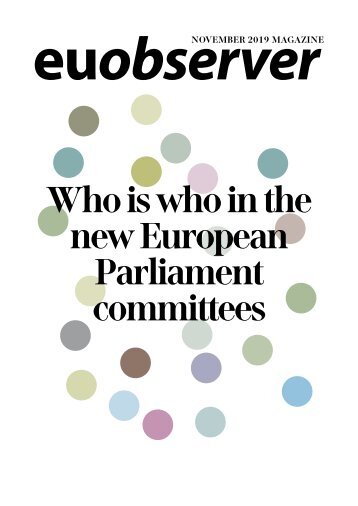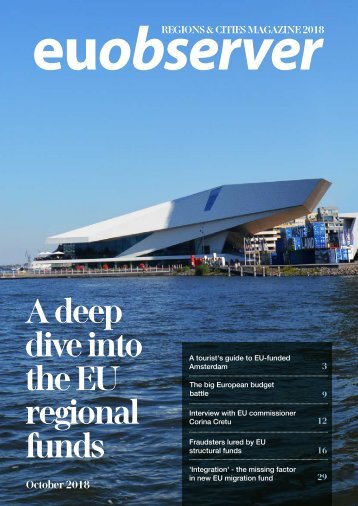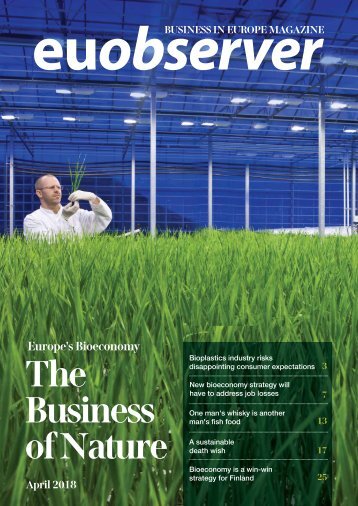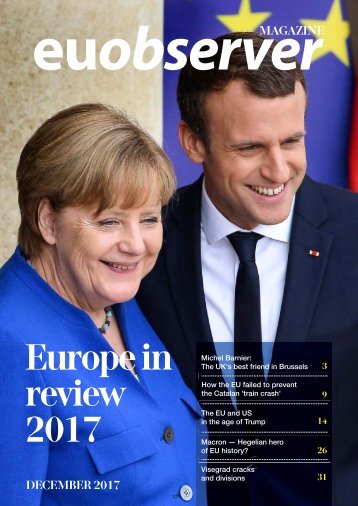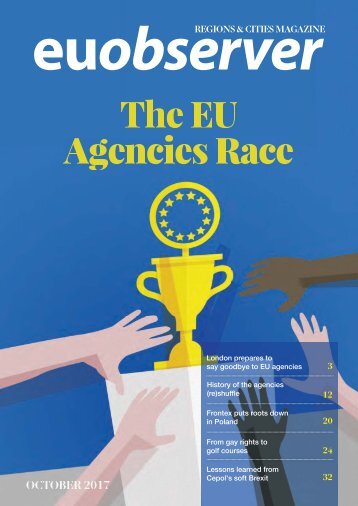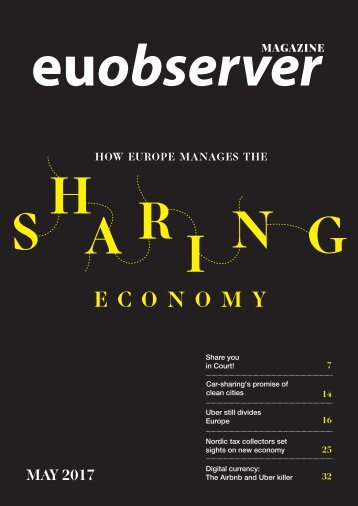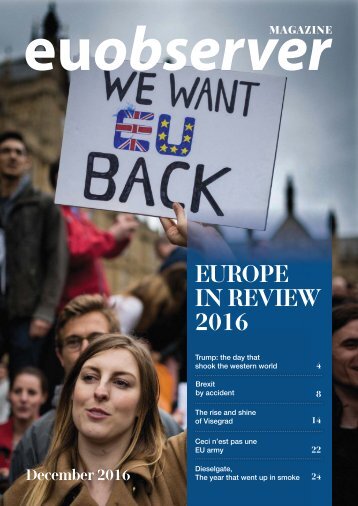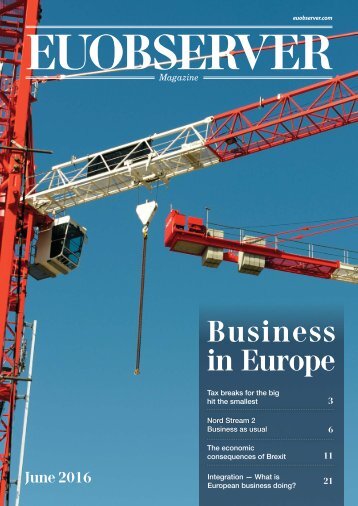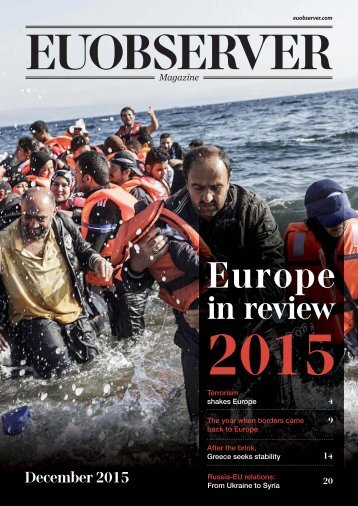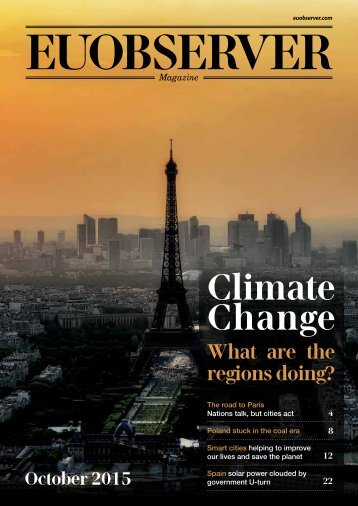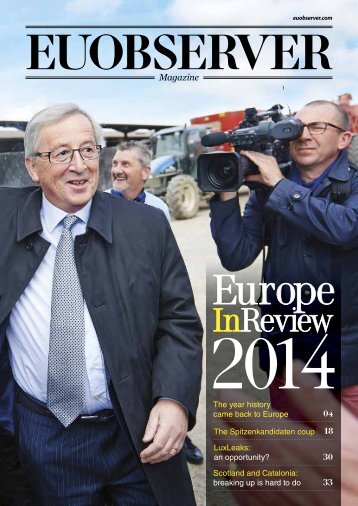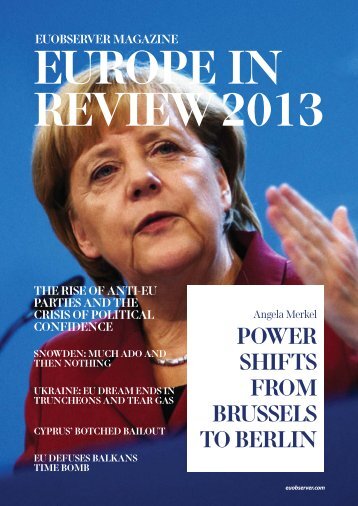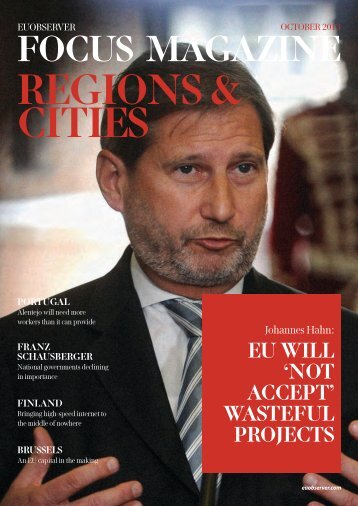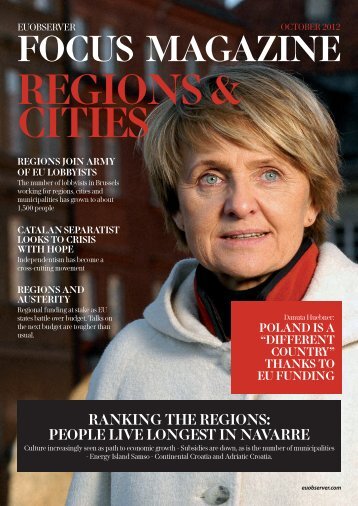Europe in Review 2014
- Text
- Terrorism
- Cameron
- Farage
- Ttip
- Romania
- Economy
- Ukraine
- Ukraine
- Catalonia
- Scotland
- Luxleaks
- Spitzenkandidaten
- European
- Juncker
- Parliament
- Euobserver
- Russia
- Brussels
- Democracy
- Elections
THE EU SEMESTER
THE EU SEMESTER ALLIANCE, A KEY VOICE TO HEAR AND FOLLOW In recent years, it has been increasingly difficult for civil-society stakeholders to participate in decision-making processes and get their voice heard both at national and EU levels despite the enormous impact that the crisis-driven austerity policies have had on millions of people living in Europe. EU austerity measures attacked social and environmental rights, increasing inequalities, poverty and social exclusion and undermining progress on climate change and environmental sustainability. When the new Strategy of the European Union for 2010-2020 - the Europe 2020 Strategy - started in 2010, governing bodies, both at EU and national levels, had already lost a great part of legitimacy towards their representatives and their trust. The new Europe 2020 Strategy seemed to offer potential for hope by breaking new ground establishing five concrete targets for delivering on smart, social and sustainable growth by 2020. The targets were set to reduce poverty by at least 20 million by 2020, achieve a 75% employment rate for women and men, reduce early school leaving to 10%, reduce greenhouse gas emissions by 20 per cent and increase energy efficiency to 20%. However, the result of the mid-term review of the Strategy was sobering showing that the progress made on all the targets had been extremely limited. The numbers of people in poverty had risen to 124 million while the employment rate had declined to 68,4 per cent. Early school leaving has been has been reduced to 12,7 but showing a shortfall of 2,7 per cent. Greenhouse gas emissions were reduced by 18 per cent in 2012, but projections show that 13 Member States will not reach their national greenhouse targets by 2020. Civil-society stakeholders join forces to keep their space and voice in decision-making The main instrument to deliver these targets is through the ‘European Semester’, the annual mainly economic coordination cycle with Member States. Stakeholders including civil society and social organizations are supposed to be key partners in the delivery – but in reality this is not happening. In this context of eroding participation and lack of progress of the European Strategy on environmental, social and equality goals, 15 major European civil-society organisations and trade unions, got together with a common belief: to ensure an inclusive and sustainable recovery and a viable vision for the future of the EU, and to restore democratic legitimacy and credibility. They called together for Europe 2020 to be placed at the heart of the Semester process to get progress on the targets, based on a rights-based approach and through real dialogue with civil society. Building on an initial adhoc alliance developed in 2012, 15 civil society and trade union stakeholders created the crosssectoral EU Alliance for a democratic, social and sustainable European Semester or (EU Semester Alliance), gaining support from the European Commission under a specific call. The common aim was to defend and strengthen civildialogue engagement in the European Semester at national and EU levels in order to support progress towards a more democratic, social and sustainable Europe 2020 Strategy, The EU Semester Alliance main activities in 2015 have included joint assessments of the Semester and alternative proposals for country-specific recommendations, as well as input to the Mid-Term Review of Europe 2020; capacity building and awareness-raising based on training and a common tool kit, translated in 7 languages and key advocacy events. A key added value of the EU Semester Alliance has been the creation of 3 national Semester Alliance pilots in Bulgaria, Denmark and Ireland, which gathered together civil-society and trade union stakeholders from a wide range of sectors, working at national level to engage in Europe 2020 in the Semester Process, with very positive results Hearing in the European Parliament Giving a Voice to Civil Society proposals for Europe 2020 gets wide support On the 3rd December, the EU Semester Alliance held its 2nd hearing in the European Parliament to highlight the missing voice of civil society in the debate on the revision of the Europe 2020 Strategy, and the urgent need to include them as key partners in the EU governance process known as the European Semester, at national and EU levels. The hearing, hosted by MEPs Jean Lambert (Greens/EFA) and Marian Harkin (ALDE), together with the Alliance, gathered a wide range of actors including Member States representatives, MEPs, NGOs, Trade Unions and European Commission representatives. The Alliance presented its assessment of the Semester and key messages from the EU and national alliances. Six MEPs from 6 political groups (S+D, EPP, GUE, ALDE, EFDD, Greens/EFA) all supported the EU Semester Alliance’s positions both on civil society engagement and progress towards the social and sustainable agenda. The European Commission also highlighted the importance of the Alliance’s work and their concern to get greater ownership of the European Semester by encouraging engagement of civil society and other stakeholders. It underlined its support to continued dialogue of the EU Semester Alliance. “The EU Semester Alliance is still a young project, but our members are strong. It is our aim to build a more social Europe where people’s concerns are at the heart of policy-making. It is the voices and experiences of people who feel that impact of policies that we can bring to the decision-making processes. Decisionmakers will need to listen to us. After all, that is democracy”. Barbara Helfferich, Chair of the European Semester Alliance. For more information on the Alliance, its activities and publications, its members and on the European Semester, see the Alliance website http://semesteralliance.net/ ENABLING CIVIL-SOCIETY TO PARTICIPATE IN THE SHAPING OF EU POLICIES AND TO CONTRIBUTE TO PROGRESS ON THE TARGETS OF THE EUROPE 2020 STRATEGY CONCERNS US ALL! 12 ––––– Europe in review 2014 Europe in review 2014 ––––– 13
- Page 1 and 2: euobserver.com Magazine Europe 2014
- Page 4: The year history came back to Europ
- Page 8: Dear Mr. Juncker, We need to talk
- Page 14: Klaus Iohannis is also the first Ro
- Page 18: The next EU elections will be held
- Page 22: Birth of the Juncker commission Rea
- Page 26: Donald Tusk (l) is likely to be mor
- Page 30: LuxLeaks: an Opportunity? European
- Page 34: Artur Mas is the president of Catal
- Page 38: OVER the BLUE HORIZON A killing in
Inappropriate
Loading...
Mail this publication
Loading...
Embed
Loading...

